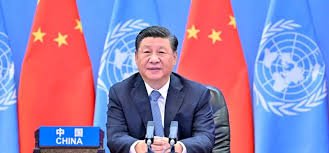Chinese President Xi Jinping will pay state visits to France, Serbia and Hungary from May 5 to 10. This will be the first visit to Europe by China’s head of state in nearly five years.
Against the backdrop of intensifying global turbulence, the China-EU relationship holds strategic significance and global influence. It bears upon the pillars of world peace, stability, and prosperity.
Xi’s upcoming visits to the three European countries will inject strong impetus into the development of the relations between China and the three countries and the China-EU comprehensive strategic partnership, and bring more stability and positive energy to the fast-changing world.
France is the first major Western country to establish diplomatic relations at the ambassadorial level with the People’s Republic of China. China-France relations have long been at the forefront of China’s relations with Western countries. The unique history of bilateral relations have shaped the “China-France spirit” featuring independence, mutual understanding, foresight, mutual benefit and win-win cooperation.
In recent years, under the strategic guidance of President Xi and President Macron, China-France relations have maintained a sound development momentum, with fruitful strategic communication, practical cooperation, deeper people-to-people and cultural exchanges, and sound communication and coordination in international and regional affairs.
Faced with a complex and volatile international situation, China and France both insist on independence and win-win cooperation, both oppose the division of the world and bloc confrontation, and both practice multilateralism and uphold the UN Charter and international law.
The international community expects China and France to form a common position and speak with same voice on major issues bearing on world peace and stability, as well as the future of mankind.
Xi’s visit marks the second visit by a China’s head of state to France in five years. It coincides with the 60th anniversary of the establishment of diplomatic ties between the two countries and is of great significance to building on the past achievements and charting the course for the future.
Further consolidating political mutual trust and strengthening solidarity and cooperation will bring China-France comprehensive strategic partnership to a new level, inject new impetus into the sound and steady development of China-EU relations, and make new contributions to world peace, stability, and progress.
Serbia is China’s first comprehensive strategic partner in Central and Eastern Europe. The two countries have nurtured an iron-clad friendship, serving as a model for friendly relations between China and European countries.
In recent years, under the strategic guidance of President Xi and President Vučić, China-Serbia relations have enjoyed robust growth. The two countries have firmly supported each other on issues of core interests and major concerns, enjoyed solid political mutual trust, achieved fruitful outcomes in high-quality Belt and Road cooperation, and maintained close coordination in multilateral arena. The robust and powerful China-Serbia cooperation is in the fundamental and long-term interests of both countries and peoples.
This visit will be Xi’s second visit to Serbia in eight years. During the visit, the two heads of state will have an in-depth exchange of views on bilateral relations and international and regional issues of mutual interest. The two sides will hold discussions on elevating the positioning of bilateral ties and charting the course for future development.
The upgrading of China-Serbia relations will not only bring greater benefits to the two peoples but also strengthen the power to uphold international fairness and justice, making greater contributions to building a community with a shared future for mankind.
This year marks the 75th anniversary of the establishment of diplomatic relations between China and Hungary. Hungary is an important country in Central and Eastern Europe and China’s important partner in Belt and Road cooperation and China-Central and Eastern European countries cooperation.
In recent years, in the face of a complex and volatile international situation, Hungary has remained committed to being a force of peace and stability in Europe, resisting interference and pressure, and steadfastly deepening cooperation with China.
China and Hungary are comprehensive strategic partners who are committed to their respective development in line with their national conditions. The two countries have achieved fruitful results in mutually beneficial cooperation across various fields, bringing tangible benefits to the two peoples. The in-depth cooperation between the two countries demonstrates that China is an opportunity rather than a challenge, a partner rather than a rival for Europe.
The joint invitation extended by Hungarian President Sulyok and Prime Minister Orbán to President Xi to visit Hungary fully demonstrates Hungary’s high regard and earnest expectations for this visit. This milestone visit will elevate bilateral relations to a new level and open a new chapter for China-Hungary friendly cooperation, which is conducive to maintaining regional and global peace, stability, and prosperity.
China and the EU should be characterized rightly as partners, and cooperation should be the defining feature of their relationship. As two major forces advancing multipolarity, two major markets in support of globalization, and two major civilizations championing diversity, China and the EU share extensive common interests, with cooperation and consensus far surpassing competition and disagreements.
China always views its relations with the EU from a strategic, long-term perspective, and takes the EU as a high priority in its external relations. Xi’s state visits to the three European countries will undoubtedly further strengthen mutually beneficial cooperation between China and the EU. This will provide more stability to a turbulent world and inject more impetus into global development.





